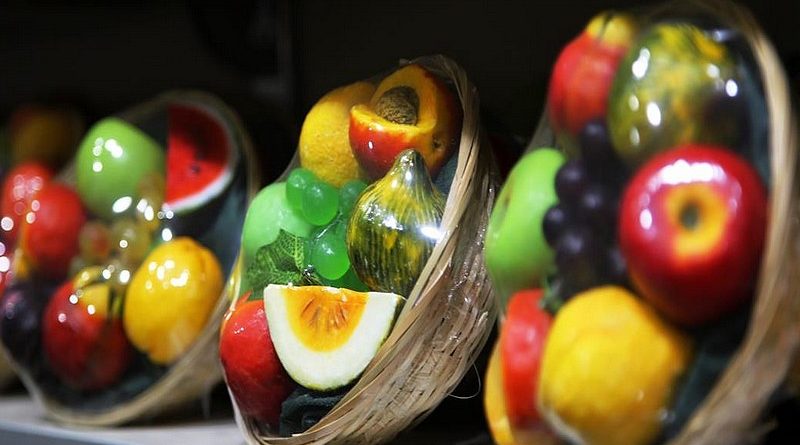
Edirne Mis Soap
Edirne is one of the cities that host the most tourists with its diversity in its tourism portfolio. Moreover, the reasons for visiting this ancient city are so many that it does not fit in a seasonal time frame, it spreads throughout the year.
It is the crossroads of faith tourism and religions. One of the largest synagogues in Europe is in Edirne. It welcomes the members of the Bulgarian Church and another religion with all its hospitality. This city is also the center of Baha’ism, a lesser-known belief movement.
But no matter where you approach the city from, you see Selimiye like a pin nailed to the horizon of the city; A completely different spiritual climate surrounds you in Edirne at that moment. Especially if you are visiting the city during Ramadan, you may not find a place to take a step.
Spring checkers from gypsy tile roofs that have not yet lost their thin smoke; Edirne is overwhelmed by the enthusiasm of Kakava and the excitement of Hıdrellez. This is the good news that a flock of visitors, chasing a Thrace-specific enthusiasm, are already on their way.
While the sweltering heat of the summer is raging, Edirne becomes a hotbed of black and white wrestlers who fight so that their backs do not touch the meadow. Tens of thousands of visitors came to watch the roller wrestling of these valiants…
Yellow quince, red pomegranate, sometimes vineyards and gardens cut into that abundance with the swaying half; Flavor-breaking flavors from the hands of masters, each representative of an ancient tradition… All of them are an excuse in themselves to set out for Edirne.
The legendary Şükrü Pasha in Kıyık Bastion, and the conqueror of Lausanne İsmet Pasha in Karaağaç, this serhat gave the city’s certificate…
Being the second city in Europe with the most historical artifacts per square meter means that cultural tours are never lacking throughout the year. Selimiye, which everyone knows, is only the most famous among them. You come across a trace of civilization every step of the way in Edirne. Castles, towers, historical mosques, each a symbol of elegance and grandeur, with minarets nailed to the sky dome; those enormous stone bridges with necklaces on the neck of the Arda, Tunca and Meriç Rivers, which sometimes besieged the city with their blessings and sometimes their wrath; The gateway to refresh the soul and body, Sultan II. Bayezid Hospital; Houses of many Ottoman sultans, sultans and princes, Edirne palaces; fountains, inns, baths, bazaars…
Edirne bazaars are the last stop of those who set out to return from this city to come again. The Arasta of Selimiye, the Bedesten of the Old Mosque, the Ali Pasha Bazaar of Saraçlar Caddesi… These are the bazaars where you can find everything from food to clothing, from Edirne’s traditional handicrafts to souvenirs, where you can shop, it is full of dozens of small shops left and right. Among the best-selling products on the overhanging counters of these shops are the traditional handicrafts of Edirne, fragrant fruit soaps, which adorn the bazaar with all the colors of the rainbow with their colors.
The history of producing scented fruit soap, known to have first emerged in Edirne, dates back to the 1600s. 17. The fruit soaps, which were produced by shaping the soap, which was brought to a paste-like consistency by mixing musk, amber and rose essences in the Ottoman Empire in the 19th century and dyeing it in accordance with the real fruit colors, became one of the valuable gifts presented to the Ottoman palace, sultans, local and foreign state officials, and became a fruit soap business. It has become a very important profession in Edirne.
Fruit soaps, which are also known as “mis soap” among the people because they are produced by adding essence and emit a refreshing scent, are defined as “palace soap” due to the fact that the orders from the palace have to be met first, and “sultan soap” due to the hygiene and the diligence of the sultan in presenting gifts. also known.
Fruit soap making, which is in demand by the state administration and the public, especially It became one of the popular professions in Edirne at the beginning of the 19th century. in the last quarter of the 19th century and The fact that there were more than forty shops selling fruit soaps in the Bedesten and Arasta Bazaar at the beginning of the 20th century, and that there was a neighborhood called “Sabuni”, is an indication of the importance of fruit soap making in Edirne and that it is one of the important sources of income.
Fruit soaps, besides being one of the accessories frequently preferred by the public as ornaments and gifts, have also become a very rare ornament among state officials due to their quality and long-lasting essence.
Not all of the “fragrant” fruit soaps produced in Edirne were sold in the market, most of them were sent to the Topkapı Palace in Istanbul at the request of the sultan. Especially the sultan’s daughters and concubines always kept fruit soap in their rooms, and they regarded scented fruit soaps as an important part of their dowry. In addition, care was taken to include fruit soaps among the gifts sent by the sultans to foreign heads of state.
The fact that refreshing fruit soaps, which are surprisingly similar to the real thing with their size, smell and appearance, were among the favorite accessories of the Ottoman sultans, who were known to be very fond of aesthetics and taste, brought along a rapid development in fruit soap production.
The production quality, which reached its peak in these periods, brought along the fact that fruit soap making, which became widespread in Edirne, became a highly accepted value and became a unique “handicraft”.

